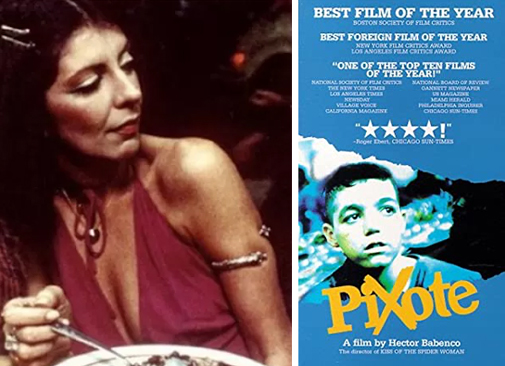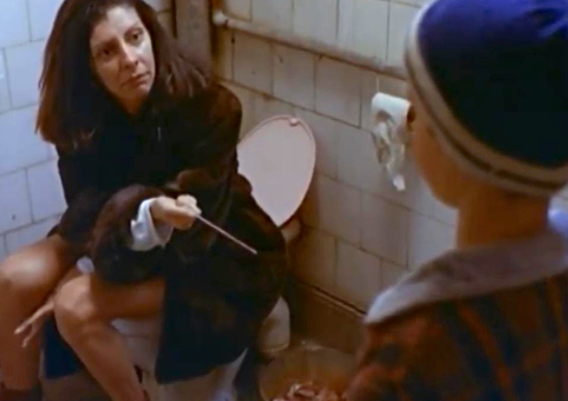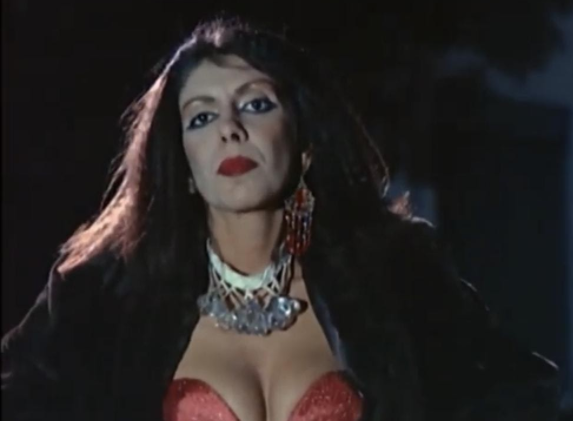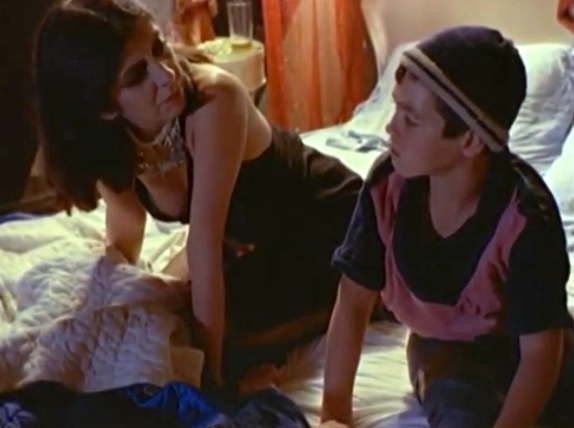Please welcome new contributor Nick Taylor who is providing us with extra Supporting Actress pleasure inbetween the Smackdown events.

How close was Hector Babenco’s Pixote to an Oscar nomination for Best Foreign Language Film in 1980? Or rather, why was it disqualified? Already lauded in Brazil for its unflinching, documentary-style depiction of the country’s unique epidemic of child criminality and the institutions benefitting from it, the film got axed for doing test screenings outside The Academy’s allotted time frame. That sounds as "necessary" as many of their eligibility nitpicks. Disqualified from consideration for 1980, Pixote became fair game upon its U.S. release in 1981, winning most of the critics prizes for Best Foreign Language Film and scoring a Golden Globe nomination over Oscar’s eventual winner, Hungary's Mephisto.
Pixote also won Best Film from Boston, who took a page from the National Society of Film Critics and gave Marília Pêra their Best Actress award. And while her performance absolutely deserved those prizes...
...Pêra is only featured in the final half hour of Pixote. She plays a downtrodden sex worker named Sueli who Pixote and his two allies have been charged with pimping out and robbing her johns. She's only the latest in a daisy-chain of unreliable criminals and abusive authority figures who house Pixote and his friends while using them for their own ends. But Sueli’s dynamics with each kid and how it impacts their loyalty to each other is the most complicated of any adult we meet. These interactions are unique as scripted and become even more provocative through Pera’s intelligent playing. There’s something refreshing about a part this small winning in a leading category, but even considering how foregrounded she is, I’d be hard pressed to agree with these groups categorizing her as a lead. The New York Film Critics Circle named her runner-up for Supporting Actress instead.

It’s a tribute to Babenco’s tough, clear-eyed direction that Pixote’s ensemble of nonprofessional child actors and veteran stars are able to interact so believably on screen. The film’s neo-realist aesthetic wouldn’t work if its cast couldn’t project such concentrated, engaging personalities, or hold the camera’s interest so charismatically without always seeming to do much. Fernando Ramos da Silva’s work in the titular role is a peak among Pixote’s talented actors, embodying an already hardened criminality while still looking to form real connections with others. For all his violent, desperate actions, there’s a childlike sense of immaturity to Pixote, one that never completely leaves him despite his suffering.
For her part, Pêra seizes on the complexities already present in her character rather than coarsening the material for the sake of crude misery, giving Sueli a full arc where one wasn’t explicitly asked for. Pêra shows an uncanny knack for visibly externalizing Sueli’s thoughts and emotions without disrupting the film’s naturalism, often conveying multiple tones simultaneously. This is all the more impressive given the many hyperbolic elements to the character a lesser actress might mistake for the part itself - her occupation, her age, her alcoholism, her sadness, her relationships with the kids, her recent traumas with her previous pimp and past abuses from years of sex work. Her first scene with Pixote is practically a minefield for all of these elements, as she sits on a blood-streaked toilet next to a metal bucket containing her aborted fetus and demands he leave her alone. Sueli’s anger in this scene is intimidating, but Pêra grounds this outburst in how exhausted and unwell she is, her sense of injustice at being abandoned and shoved back to work alongside a child who can’t mind his own business. As forceful as she is, she looks like she’s barely holding herself upright, and Pixote senses this as clearly as we do.
This scene appears to set her up as a wounded, even tragic figure the kids must care for while working for her. In fact, Sueli winds up bonding pretty quickly with her new companions, with Pêra adding a welcome levity that never undermines how badly she’s doing. None of the actors waste time making obvious markers of when Sueli starts bonding with Pixote and Dito, while Lilica begins to withdraw. After finishing their first job together, Sueli is already leaning towards Pixote to ask about their companions like old friends catching up on hot gossip. Another job goes without a hitch and she’s dancing with Dito under the headlights of a car they stole. Unlike the tense, unforgiving control exhibited by the other adults who’ve looked after them, Sueli’s rapport resembles the sincerity and openness the kids show each other. She feels like part of the gang, rather than their boss.

And then, everything falls apart. One kid leaves to find better options elsewhere. The other dies unexpectedly, in a scene made all the more stomach-churning because we aren’t immediately sure if they were killed. Pixote and Sueli are alone, wrecked by what happened and trying to figure out where they can possibly go. Their panic leads to an unexpectedly tender act of maternal comfort, where Sueli is bothered by either the scale of Pixote’s needs or her own capacity to meet them and rejects him so totally he practically shrinks. Pêra makes this rebuke physically and vocally overwhelming to bear, but she refuses to be gratuitously cruel or to retroactively write off their relationship as an act. Sueli is clearly as desperate for human companionship as Pixote, but is either unable or unwilling to solidify their bond when it’s most explicitly needed. Her declaration that she hates children, loaded with so much implication in context of what we’ve seen, becomes sadder and more suggestive of a life beyond the narrative through Pêra’s broken, agonized delivery.
Pixote excels at engendering our sympathy for conventionally unlikeable characters, but Pêra goes the farthest to interlink her character’s disparate emotions so tightly that she’s never expressing just one feeling or one idea about herself, especially to the audience. Our last sight of Sueli watching Pixote leave her room while frozen in near darkness, is a sharp contrast from his own ending, as he walks along train tracks stretching beyond the sunny horizon with an unexpected lightness in his step. Implying Pixote will keep moving forward is likely as close to a hopeful conclusion as we could possibly get. Perhaps it’s too much to wish things will turn out alright for Sueli as well, but it’s through Pêra’s authentic performance we care about her as much as Pixote.

Related:
Jessica Harper in Pennies From Heaven
Coming Soon: The 1981 Smackdown